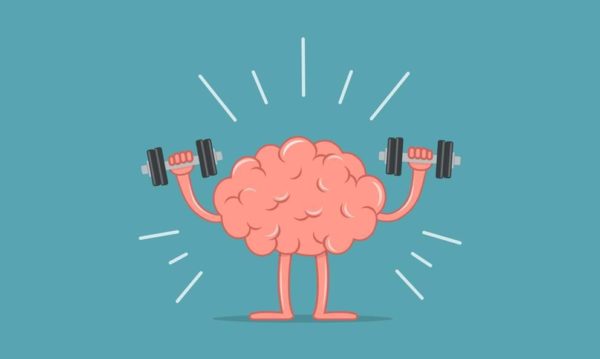In a world where health and wellness are more important than ever, exercise stands as a powerful tool in the fight against illness and disease. From boosting the immune system to reducing the risk of chronic ailments, incorporating regular physical activity into your routine can be a game-changer when it comes to overall preventive health measures. Let’s explore the many benefits of exercise as a preventive measure and how it can help safeguard your well-being for years to come.

The Importance of Regular Exercise for Disease Prevention
Regular exercise plays a crucial role in disease prevention. By incorporating physical activity into our daily routines, we can significantly reduce the risk of developing various health conditions. Exercise helps to strengthen our immune system, improve circulation, and maintain a healthy weight. These factors are essential in preventing diseases such as heart disease, diabetes, and certain types of cancer.
In addition to the physical benefits, exercise also has a positive impact on our mental health. Engaging in regular physical activity can reduce stress, anxiety, and depression. It can also boost our mood and improve our overall sense of well-being. By taking care of our bodies through exercise, we are not only preventing physical diseases but also promoting mental wellness.
It is important to note that the type of exercise we engage in matters. Incorporating a variety of activities, including cardiovascular exercises, strength training, and flexibility exercises, can provide a holistic approach to disease prevention. Finding activities that we enjoy and can stick to in the long term is key to reaping the benefits of regular exercise. Whether it’s going for a run, attending a yoga class, or lifting weights at the gym, making exercise a priority in our lives is a powerful preventive measure against disease.
| Disease | Prevention |
|---|---|
| Heart disease | Regular exercise helps maintain a healthy heart |
| Diabetes | Exercise improves insulin sensitivity |
| Certain types of cancer | Physical activity reduces the risk of cancer |
Benefits of Physical Activity in Reducing Health Risks
Regular physical activity plays a crucial role in reducing the risk of various health issues and diseases. By incorporating exercise into your daily routine, you can significantly improve your overall well-being and longevity.
One of the key benefits of physical activity is its ability to lower the risk of heart disease. Exercise helps strengthen the heart muscle, improve circulation, and lower blood pressure. By maintaining a healthy heart, you can reduce the likelihood of developing cardiovascular issues.
Additionally, engaging in regular physical activity can help prevent obesity and diabetes. Exercise helps boost metabolism, burn calories, and regulate blood sugar levels. By maintaining a healthy weight and blood sugar levels, you can decrease the risk of developing these chronic conditions.
Specific Exercise Recommendations for Maintaining Overall Health
Maintaining overall health is crucial for living a long and fulfilling life. One of the key ways to achieve this is through regular exercise. By incorporating specific workouts into your routine, you can boost your immune system, improve your cardiovascular health, and increase your overall well-being.
When it comes to maintaining overall health, it’s important to focus on a combination of cardio, strength training, and flexibility exercises. Cardiovascular exercises such as running, cycling, or swimming can help improve your heart health and endurance. Strength training exercises like weightlifting or bodyweight exercises can help build muscle mass and increase your metabolism. Flexibility exercises such as yoga or stretching can improve your range of motion and reduce the risk of injury.
In addition to these specific types of exercises, incorporating activities that you enjoy can make it easier to stay consistent with your fitness routine. Whether it’s dancing, hiking, or playing sports, finding activities that you love can make working out feel less like a chore and more like a fun and rewarding experience.
Overall, making exercise a priority in your daily routine is essential for maintaining overall health. By following these specific exercise recommendations and staying consistent with your workouts, you can significantly improve your physical and mental well-being. So lace up your sneakers, grab your yoga mat, and start moving towards a healthier and happier you.
Incorporating Exercise into Your Daily Routine for Long-Term Wellness
Exercise is not just a way to stay fit and healthy; it can also be a powerful preventive measure against various health conditions. By incorporating regular physical activity into your daily routine, you can significantly reduce your risk of developing chronic diseases such as heart disease, diabetes, and certain types of cancer.
One of the key benefits of exercise as a preventive measure is its ability to strengthen the immune system. Regular physical activity helps to boost the immune system, making it more effective at fighting off infections and illnesses. This can not only help to prevent the common cold and flu but also reduce the risk of more serious health conditions.
Furthermore, exercise is known to have a positive impact on mental health. Physical activity triggers the release of endorphins, which are often referred to as the “feel-good” hormones. These hormones can help to reduce feelings of stress, anxiety, and depression, making regular exercise an important part of maintaining good mental health.
In conclusion, incorporating regular exercise into your lifestyle can serve as a powerful preventive measure against a myriad of health issues. From cardiovascular diseases to mental health disorders, the benefits of staying active are undeniable. So lace up your sneakers, hit the gym, or dance to your favorite tunes – whatever form of exercise you choose, remember that every step you take towards a healthier you is a step towards a brighter, longer future. Your body will thank you for it.




